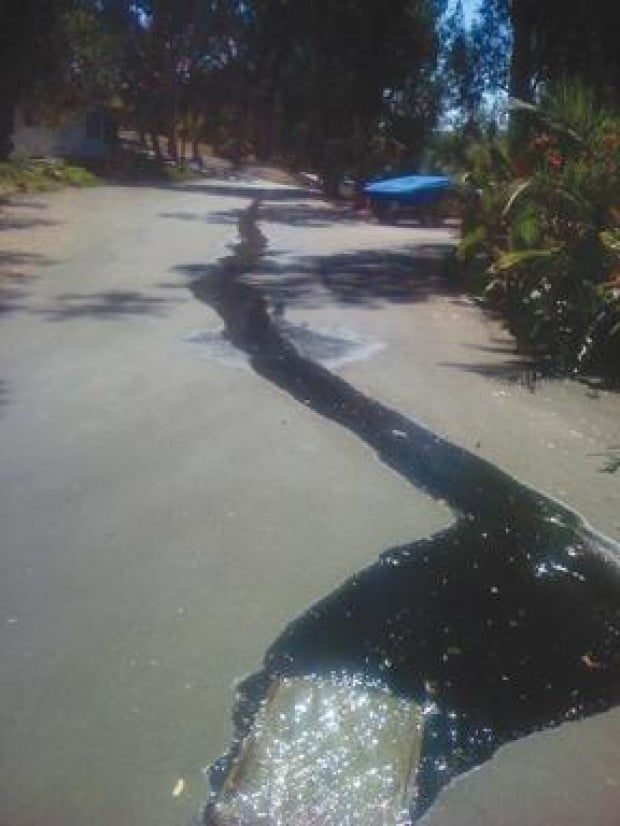
The State Regional Water Control Board and state Superior Court issue deadlines to the Kissel Company on alleged sewage spills in Paradise Cove Mobile Home Park.
By Vicky Shere / Special to the Malibu Times
The Kissel Company this month was hit with two deadlines on alleged sewage spills at its Paradise Cove Mobile Home Park in Malibu.
On Sept. 5, the state Regional Water Quality Control Board issued its Cleanup and Abatement Order requiring action on alleged sewage overflows that occurred in August. If conditions of the order are not satisfied, Kissel potentially faces millions of dollars in civil penalties.
And on Sept. 21, state Superior Court Judge Lawrence Mira set Nov. 5 for an all day hearing to determine whether Kissel had violated five counts of the Health and Safety Code. Kissel potentially faces a maximum $50,000 fine in this lawsuit filed by the state of California.
Park residents were pleased with the RWQCB order and disappointed that Kissel, after nearly 10 years of litigation, had another six weeks to prove its case.
The cleanup and abatement order, coming a month after the RWQCB notice of violation of a prior order requiring Kissel to meet wastewater discharge requirements by Feb. 1, cites three sewage spills that occurred between July 23 and Aug. 8.
Kissel must “take remedial action to clean up and abate actual and threatened discharges of raw sewage,” the order states. By Friday this week, Kissel must submit to the RWQCB a “Spill Prevention Plan” it has adopted and implemented; must identify and provide personnel responsible for the [wastewater treatment] “Plant;” and submit a “Spill Response Protocol.”
In a telephone call about recent RWQCB actions, Kissel President Steven Dahlberg said the cleanup and abatement order was different than the notice of violation in that it doesn’t tell Kissel how to comply but asks for a plan to comply. “We are constantly monitoring the system and we believe we’re in compliance with the board’s wastewater discharge requirements,” Dahlberg said.
Contacted by telephone, Mark Gold, president of environmental watchdog Heal the Bay, said, “The regional water board’s enforcement action is justified. Although the long-term impacts of sewage spills are minimal, the impact of spills on beach closures, warnings and, most importantly, public health, is major.”
In the suit filed by the state against Kissel, Deputy District Attorney Daniel Wright succeeded in getting Judge Mira to revoke Kissel’s probation on five counts of the California Health and Safety Code, pending the violation of a probation hearing.
However, Mira, who, nearly eight years ago ordered the probation when Kissel pled no contest to the five misdemeanors, limited the scope of the Nov. 5 hearing to the park’s septic system rather than the RWQCB wastewater discharge and reporting requirements cited by Wright.
The district attorney must notify Kissel of the probation violations no later than 15 days before the hearing [Oct. 21], Mira ordered.
About 20 park residents hoping to testify at last week’s hearing were frustrated with the postponement.
“Kissel gets another pass,” was the sentiment heard in the Malibu court hallway.
However, several residents told The Malibu Times of their life in the 72-acre, ocean-view park.
Steve Rocco, a six-year resident, said sewage spills had gone “from bad to worse,” as recently as a few days before the hearing. Some of the spills flowed toward the children’s park. Workers poured “gallons of bleach” to hide the spills rather than repairing a blocked sewer line, Rocco said.
When asked whether there was a “tenant conspiracy” (another remark overheard in the Malibu court hallway), nine-year resident Becky Christensen said that all the tenants wanted was to have the septic system function so that spills would be rare, and a protocol for prompt repair of future spills and less cumbersome enforcement.
“This is not about punishment, it’s about getting health and safety issues promptly taken care of and establishing a system of maintenance going forward,” Christensen said.
